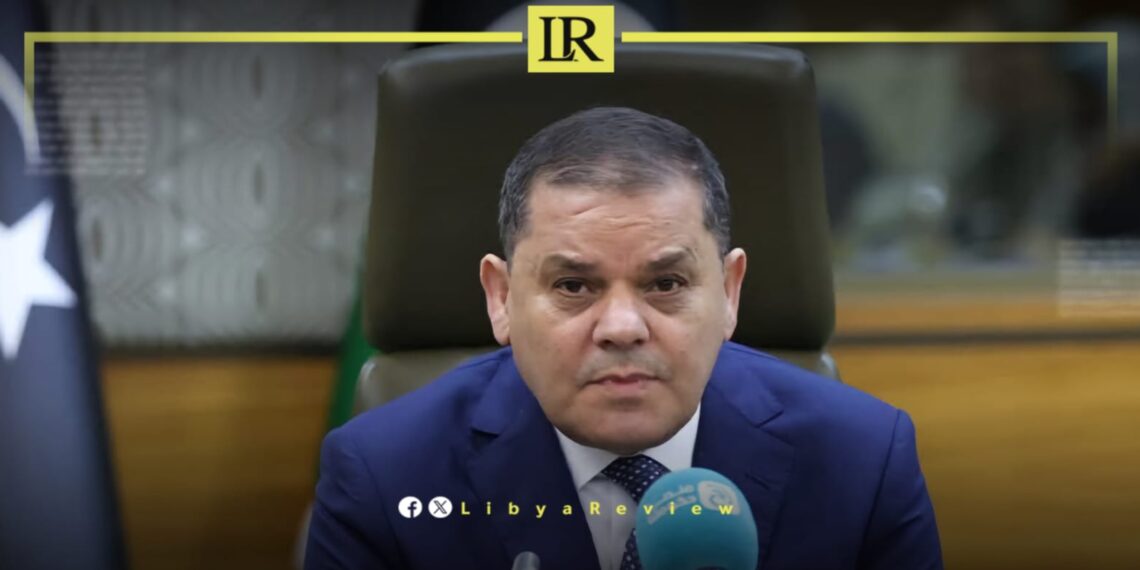Libyan Prime Minister Abdulhamid Dbaiba has announced a new political initiative aimed at ending the country’s prolonged deadlock, vowing to restructure the government, assert state authority, and eliminate armed groups.
Speaking at the second regular cabinet meeting of the Government of National Unity (GNU) in Tripoli on Tuesday, Dbaiba outlined three key tracks. The first involves reshuffling his government based on competence rather than political quotas. The second will launch a national inquiry project to reflect public will, and the third aims to establish a realistic mechanism to secure elections and eliminate the justification for a parallel government.
Dbaiba stated that the initiative is intended as “a realistic, popular solution to be presented at the dialogue table,” and defended his government’s recent security operation in Tripoli, claiming it received broad international support. He described the operation as part of an ongoing effort to impose the rule of law.
The GNU leader also issued a warning against what he termed “a new financial disaster” caused by the House of Representatives under Speaker Ageela Saleh, criticising unchecked spending exceeding 100 billion dinars in two years. He called on the Attorney General, Audit Bureau, and Administrative Control Authority to expose the truth about parallel expenditures, adding that reconstruction cannot be used as a pretext for squandering public funds.
Dbaiba criticised plans by the House to allocate a separate budget to the Reconstruction and Development Fund, describing it as a blatant attempt to control oil revenues. He cautioned that such spending outside the national budget would drive the Libyan dinar lower and worsen inflation.
He condemned the political class for obstructing electoral laws and prolonging transitional phases. He reiterated his government’s commitment to transparency and accountability, noting that despite persistent efforts to destabilise the GNU, it has continued to serve all Libyan regions.
Addressing recent protests demanding his resignation, Dbaiba said peaceful demonstrators were protected without incident, distinguishing them from those using force. He reaffirmed international support for the government’s efforts to restore order, insisting that “this is not a power struggle, but an effort to uphold state authority.”
Dbaiba concluded by stressing that Libya’s only path to stability lies in free elections, where citizens alone choose their leadership without external influence.


